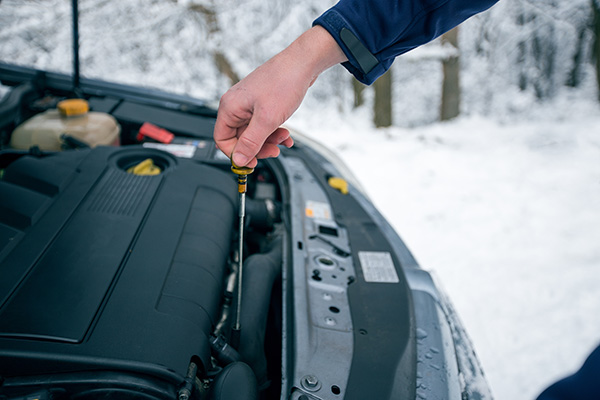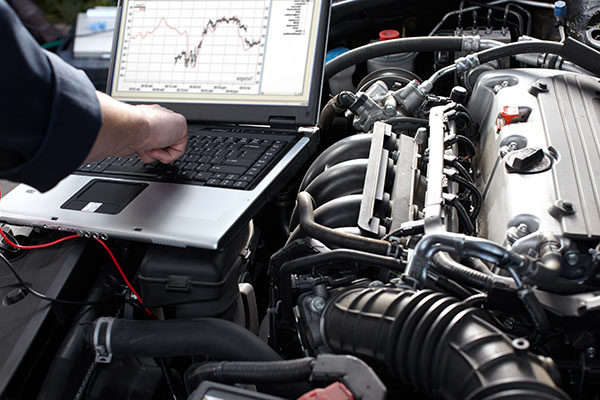Posted on 12/26/2025

When the car hesitates, stumbles, or surges only for the first few minutes of driving, it can be frustrating and a little worrying. Once the engine warms up, everything feels fine again, so it is easy to ignore. That early cold-behavior, though, often points to small issues with fuel delivery, air metering, or sensors that are easier to fix before they turn into bigger problems. What “Cold Engine” Really Means for Modern Cars When your engine is cold, metal parts are slightly smaller, oil is thicker, and fuel does not vaporize as easily. The computer knows this and runs a richer mixture, slightly higher idle speed, and different timing for the first few minutes. It relies on coolant temperature, air temperature, and other sensors to decide how much extra help the engine needs. If any of those inputs are wrong, or if the engine cannot control airflow precisely at low rpm, you end up with surging, stumbling, or a delay when you press the gas. Once everythi ... read more
Posted on 12/24/2025

As the holiday season is here in Northern Delaware, all of us at Fox Run Auto want to take a moment to thank our customers for another wonderful year. Whether you visited us for routine maintenance, unexpected repairs,or advice to keep your vehicle running strong, we truly appreciate the trust you place in our team. You’re the reason we love what we do. Safe Travels The holidays are a busy time filled with family travel, winter weather and crowded roads, so it’s more important than ever to keep your vehicle ready for the season. If you’re planning a Christmas road trip or simply preparing for colder days ahead, now is a great time to check your battery, tires, antifreeze and heating system. A little preventive care can make all the difference when you’re out visiting friends, shopping for g ... read more
Posted on 12/17/2025

At Fox Run Auto, we believe every customer deserves friendly service, expert care and complete confidence in the work performed on their vehicle. Reviews like Rob’s remind us why we stay committed to those values every day. “Well, where do I start?" Rob says. "One of the best automotive repair shops I’ve ever used for my mechanical work! Very knowledgeable, professional and organized but above all friendly. Felt like I’ve known these folks for years." We’re grateful for customers like Rob who trust us with their family’s vehicles, including older models that require extra attention. Our team takes pride in treating every car as if it were our own and every customer as a neighbor—because that’s exactly what they are. Service Advisor Vinny and our entire c ... read more
Posted on 12/10/2025

Your vehicle’s suspension system does more than keep your ride comfortable. It also plays a major role in steering, stability, handling and overall safety. As components like shocks, struts and bushings wear out, you may start to notice subtle changes in how your vehicle drives. Catching these signs early can help prevent more serious issues and expensive repairs down the road. Uneven Tire Wear One of the earliest indicators of suspension problems is uneven or accelerated tire wear. If your suspension isn’t keeping your wheels properly aligned with the road, certain parts of the tire may wear out faster than others. This is a sign your shocks or struts may no longer be absorbing impact correctly. Excessive Bouncing or Nose-Diving If your car continues to bounce after hitting a bump, or if the front of th ... read more
Posted on 12/3/2025

When it comes to keeping your vehicle reliable, safe and efficient, few services are as valuable as a comprehensive multi-point inspection. Whether you’re preparing for a long road trip, bringing your car in for routine maintenance or simply want peace of mind, a multi-point inspection helps you stay ahead of potential problems before they turn into costly repairs. What is a Multi-Point Vehicle Inspection? A multi-point inspection is a detailed, top-to-bottom evaluation of your vehicle’s most important systems. At Fox Run Auto, our technicians take the time to examine brakes, tires, suspension components, belts, hoses, filters, fluid levels, battery health, steering systems and more. Every vehicle that comes into our shop gets a careful, methodical look so you have a clear picture of ... read more